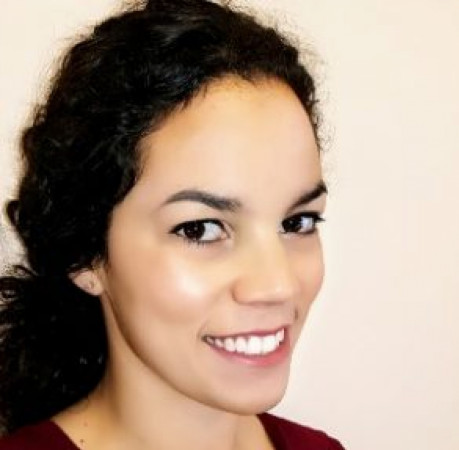This has been an unusual time for all of us. Whether we are staying at home or, for most of us in health care, going to work, somehow both options feel like a paradox. There is unease about our physical security if we go out, but strain on our social, emotional, mental, and/or financial security if we stay in. Whatever your situation, most of us are feeling pressure right now. We are noticing parts of our lives that we may have taken for granted. A handshake or a hug now seems like an unaffordable luxury. A glass of wine shared with a friend (or maybe a few), is now a daring escapade. Celebrating birthdays, holidays, triumphs and losses with our extended family, or maybe just bringing in a tray of home-baked brownies to the staff room, now all seem like dangerous acts of rebellion. However, it is in times like these that we are presented with the greatest opportunities for growth–”necessity is the mother of invention,” as they say.
All around the world people are finding creative solutions to problems that may not have even existed six months ago. A hotel in Sweden has relaunched itself as a “COVID-safe” boutique restaurant by turning each room into a private dining room.1 Robots that emit UVA light to disinfect hospital rooms, ORs and N95 masks are now autonomously roaming hospitals in the USA.2 Other companies are seeking to help individuals innovate or start a new business while isolating inside their homes.3 We have also seen drastic changes in our natural environment as a result of decreasing human activity and travel, with decreases in air pollution over a matter of weeks that some believed would require decades of advocacy and policies to produce.4
Previous global events have left significant impacts on our lifestyle, technology and society today. For example, during World War I, the development of cellucotton for bandaging battle wounds and use in gas masks was later developed into Kleenex and sanitary pads; and out of necessity, the world’s first blood bank was started to tend to wounded soldiers on battlefields.5 During World War II, women began to take on technical and industrial work that was previously only allowed for men. In doing so, they learned skills, independence and resilience that fuelled the women’s rights movements of the following decades.6
History is filled with examples to draw on, in which eras of turmoil have generated positive changes to society. Whether these changes are big or small, the current pandemic provides us with an opportunity for reflection, ingenuity and connection that may constructively shift our lives and our culture, if we are willing to take it.
For me, pandemic praxis has meant dusting up on internal medicine differential diagnoses, reviewing treatment algorithms and donning scrubs on a regular basis; all while managing my anxiety around the possibility of redeployment. It has also meant using some of my best distress tolerance skills to roll with the uncertainty of incessant news updates and rapid policy changes. It has meant reimagining family vacations, educational opportunities, and accepting a different pace of life. However, it has also encouraged me to reconnect with the simple peace of activities like walking my dog, working in my garden, taking the time to enjoy the process of cooking a good meal. It has also meant spending more time with my husband not “doing things” or “going out”, but just being. Together. It has meant rediscovering old photos and childhood souvenirs that were tucked away in stacks of boxes in my basement. It has allowed me to appreciate how much closer I feel to my friends and family when I can see their faces through a video chat instead of just a text message between appointments, or a phone call made while I am driving home from a busy day at work.
As we finally melt our way out of winter and the world starts to turn green again around us, I find myself fascinated (as I am every year) by the brown, dry and barren branches that suddenly begin to sprout new leaves and flowers. I am surprised by the rush of color that returns to our landscape. Right now, it feels like the perfect reminder that much like the long, cold winters here on the prairies, this pause to the usual pace of life is not the end of a way of life that we need to mourn; rather it is a seasonal change, a necessary part of our societal life cycle. It is a disruption to our heads down, inwardly focused day to day life that encourages us instead to step back and reflect on what we value, what we truly need, and to get creative and excited about the parts of our lives that we have started to take for granted. So, when the sun warms us again, when the freeze of COVID-life begins to thaw, and when we can get back into our more familiar rhythms, what will you carry with you? What lessons will you have learned? What new energy, passion, or appreciation will you allow to grow in your life? And maybe most ambitious of all, will we, as a society, take this opportunity to make positive, lasting changes in our old habits that can reshape the course of our future?
References
- https://www.covidinnovations.com/home/05052020/stadt-hotel-in-sweden-turns-hotel-rooms-into-67-exclusive-pop-up-restaurants
- https://time.com/5825860/coronavirus-robot/
- https://news.virginia.edu/content/robot-allows-uva-health-reuse-thousands-masks-covid-19-fight
- https://www.redboxinnovation.us/free-toolkit
- https://www.canadiangeographic.ca/article/air-pollution-wildlife-sightings-how-covid-19-changing-our-world
- https://www.history.com/news/world-war-i-inventions-pilates-drones-kleenex
- https://www.history.com/news/how-world-war-ii-empowered-women




Be the first to leave a comment!